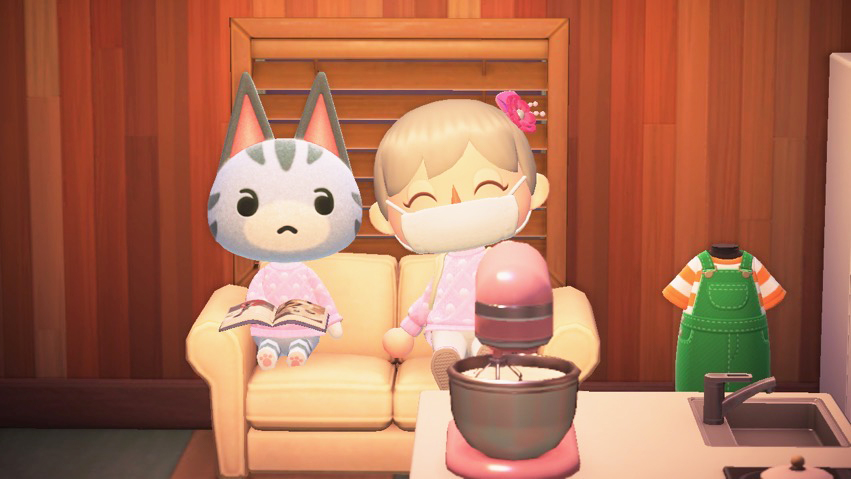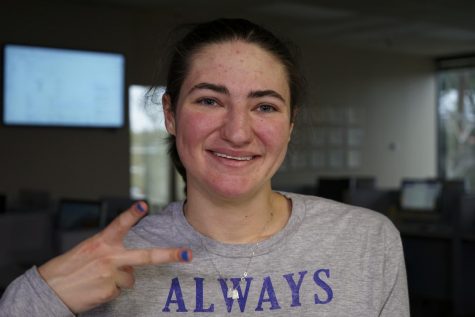Opinion: Animal Crossing is good for your mental health
Gracie Wise’s avatar sits on a couch in Animal Crossing: New Horizons. Wise said that Animal Crossing has been beneficial to her mental health. Image courtesy of Gracie Wise.
September 4, 2020
High school was some of the toughest years of my life: I struggled in math, I dealt with friendship drama and I was heartbroken when my best friend transferred to another school. I felt completely jaded with adolescence and the high school experience— the warm fuzzy feeling I first felt in eighth grade felt like nothing more than a big lie. I was also struggling with mental health and personal issues back at home, so all I wanted to do was hide in my room and play video games, which I turned to as a form of escapism.
One December evening, I decided to play ‘Animal Crossing: New Leaf’ on my Nintendo 3DS. I remember buying the game back in 2013 at Toys R Us. I played it for a while, but then I lost interest when I started back to school. Fifteen-year-old me was thinking it was going to be just like my other life simulation games, but little did I know that a game filled with talking animals would leave a mark on my youth.
I was new to the series, but during that time, I was looking forward to chatting with my neighbors, paying off my home loan to Tom Nook and participating in holiday celebrations with the townsfolk. I got to decorate my own house, play hide-and-seek with my furry friends and work in town hall with a cute secretary named Isabelle. There was no right or wrong way for me to play— I could do anything at my own pace. Whether I wanted to spend the day filling my encyclopedia up with bugs and fish or catching up on town gossip was up to me.
Sadly, I put Animal Crossing on the back-burner when I started college and got into new games like Miitopia and Stardew Valley. I was also busy with coursework and club meetings, so making time for video games everyday was nearly impossible. But when my routine was upended by the COVID-19 pandemic, I was able to play ‘Animal Crossing: New Horizons’ on the Nintendo Switch. As cringey as it sounds, getting back into my old special interest was like reuniting with a star-crossed lover.
As you can probably guess, moving back home, transitioning to online learning and being isolated from my friends caused a lot of issues for me. I was also stressed by the relentless updates about the coronavirus in Louisiana combined with the constant negativity and ugliness from all sorts of people on Facebook. So, whenever I logged into my town, I was reminded of the calming effects Animal Crossing had on me as a teenager. And as soon as I was sucked in, all of my worries seemed to melt away.
If you thought Nintendo was only for little kids, think again. Despite being marketed for such, the majority of people who buy Animal Crossing are in their 20s and 30s, according to Nintendo. In addition, over 40% of people who play Animal Crossing are women.
There is just something about Animal Crossing that makes it therapeutic for players. According to Screen Therapy, Animal Crossing helps players with mental health recovery, mood management, communication, and self-esteem. The game has also brought a lot of people together on social media, creating unforgettable friendships and memories.
Whether you’ve been an Animal Crossing fan since 2002 or you’re new to the franchise, Animal Crossing is a fun and cute game for all ages. I also highly recommend it for anyone who’s struggling with their mental health or feeling the need to take a short break from reality. Reading, drawing and going on Netflix are great stress relievers, but when the world feels very surreal, it doesn’t hurt to seek temporary asylum in your very own oasis.








